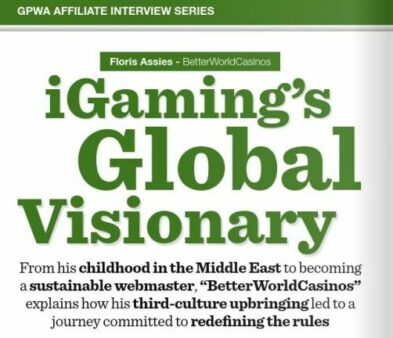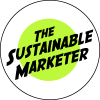

We’ve been pondering two ideas that we believe are ripe for expert involvement due to their complexity. In this post, we introduce the topics and call out for people who would like to collaborate in exploring these topics.
Below post has been published on Linkedin. This version has been modified.
We are aware of the audacity of the proposed topics. We suspect that there are people who might even find them outrageous and preposterous!
But that is of course the point. They are what they call: Big Hairy Audacious Goals! In a world where the unimaginable becomes the blueprint of tomorrow, we must break away from conventional thinking.
Topic 1: Rethinking Problem Gambling: A Path to Healing Society
What if we viewed problem gambling not as a consequence solely of the gambling industry, but as a symptom of deeper societal issues? Dr. Gabor Maté’s work on addiction suggests that addiction may be an outward expression of underlying trauma—a perspective worth exploring. Rather than blaming the individual, we should consider problem gambling as a unique opportunity for early identification of trauma and a chance to provide timely help.
Identifying Trauma Early:
Problem gambling could be the “safest” form of addiction for early-stage diagnosis, thanks in part to advancements in using AI for problem gambling detection. Unlike other harmful behaviours such as alcohol or other drug use, it doesn’t cause instant physical harm and is easier to detect due to its legal nature. But can we leverage the regulated gambling industry as a tool to spot individuals with hidden traumas? Could we channel the losses of problem gamblers into healing their root problems and potentially preventing further suffering?
Key Questions and Considerations:
- Ethical Considerations: Exploring this strategy raises ethical questions about consent, privacy, and the role of businesses in addressing societal issues.
- Business Implications: How can we balance the interests of a healthy industry and a safety net without compromising the business case?
- Player Behavior: How might knowledge of a safety net affect player behaviour? Does it affect the perception of risk and therefore the perceived entertainment value?
- Changing the Conversation: Can operators shift from compliance-driven approaches to genuine concern for individuals and addressing underlying issues?
Holistic Exploration:
This conversation naturally expands into a holistic exploration of the gambling industry’s sustainability. What are the prerequisites for a sustainable gambling industry? Can gambling coexist with responsible practices when profit maximization is the primary focus? These questions challenge conventional norms and lead us to contemplate a more compassionate society.
The idea of using problem gambling as a window into deeper societal issues is provocative. It challenges us to rethink our approach to addiction, ethics, business, and sustainability. As we journey through this exploration, we dare to push boundaries and envision a future where a thriving gambling industry coexists with responsible practices, ultimately reducing suffering and creating a more compassionate society.
This conversation will inevitably evolve into a holistic exploration of the gambling industry and sustainability where we would want to explore what the prerequisites for a sustainable gambling industry are? Can gambling ever be a truly sustainable business if it’s primarily about shareholder primacy and profit maximisation? Doesn’t this by definition conflict with responsible gambling?
Can we? Do we dare to explore that far away from the current convention?
And this brings us to an even bigger question, and topic 2:
Topic 2: Gambling in a Post-Capitalist Society: A New Paradigm
As we transition from an era of neoliberal capitalism, it’s important to acknowledge the innovation and prosperity it has fostered. However, the increasing harm and inequality arising from this system also highlight the need for change. We’re at a crossroads, envisioning a new societal model where fulfilment and purpose outweigh monetary gains. This evolution raises pertinent questions about the future role of the gambling industry in a society striving for equity and holistic well-being. This shift encourages us to reimagine gambling in the context of a world prioritizing collective good over individual wealth.
Key Questions and Considerations:
- Equity and Opportunity: In a society where disparities are diminished, and access is universal, the lure of gambling for financial gain may wane. How would the industry adapt when the thrill of monetary risk loses its sheen?
- Beyond Monetary Gains: With the foundational values of society transformed, what remains as a coveted stake for those seeking the thrill of risk? Could the quest for adrenaline evolve towards challenges that test skill, intellect, or even contribute to societal good?
- Engaging the Risk Takers: The intrinsic human draw to risk and uncertainty will persist. Identifying what stakes could replace financial incentives is crucial. Could prestige, societal contribution, or access to unique experiences become the new currency of risk? Or would a gambler need real risk for satisfaction? Maybe bet an organ? Their health? Their freedom?
Audacious and controversial enough? Does it trigger a response from you?
Invitation for collaboration
We seek voices from diverse fields—not only gambling experts but also behavioural psychologists, economists, philosophers, and visionaries—to explore these questions. Your insights are invaluable in painting a comprehensive picture of gambling’s future in a world that could be redefined by collective well-being over individual wealth.
Join us as we contemplate a future where gambling transcends its traditional bounds, morphing into a mechanism for social engagement and enrichment rather than mere financial speculation.
How to get involved
Do you want to get involved in an experiment which might lead to a roadmap of disruptive and radical change?
We will be discussing on Discord and organising virtual roundtable conversations and you are invited! Please reach out to us by email, Linkedin, X (fka Twitter) or Facebook.











